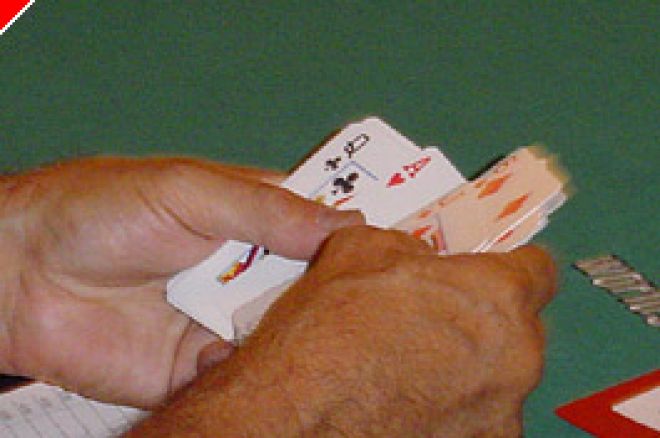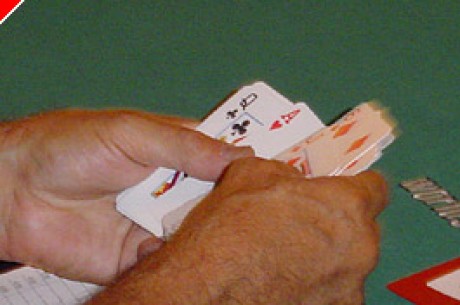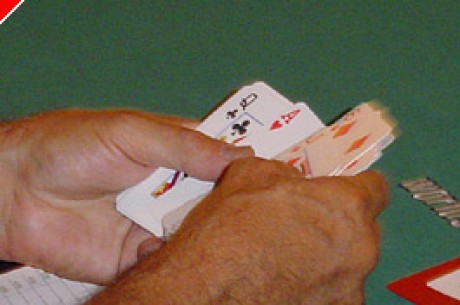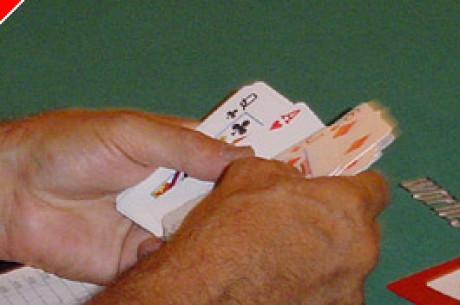Stud Poker Strategy - Arguing With Your Own Data

By night and on weekends I am a poker player, writer, and charity poker tournament director. But by day I am a union representative, organizer, and trainer for teachers. As such I frequently attend trainings geared toward teaching group dynamic and interpersonal skills. At a recent such training session I learned an invaluable lesson that applies to stud poker. I'd like to share it with you.
People, including you, bring certain pre-conceived notions into any situation they face. These notions are the data they have personally collected and believe to be true about a subject. As a leader, organizer, or trainer, it's critical that you recognize what those pre-conceived notions are and that you help people move beyond them �C giving them a means for gathering objective data with which to gauge a situation. You need to move beyond your own pre-conceived notions as well.
Here's an example. When I was a student I was frequently praised for my quick-wittedness. I got strokes as a high school and college student for clever retorts, jibes, or witticisms that I'd utter �C especially those that put down other people. Intended to be humorous, they were generally received as such by the group I was in. I got recognition and attention for it.
My "data" was that such comments were positive things. If someone made them about me I laughed at the humor. I appreciated such comments made by others and presumed that others were similarly appreciative.
As I got older, I would get the occasional raised eyebrow of disapproval. Every so often someone would actually say, seriously, that they didn't think my humorous putdowns were very funny. Even so, I persisted; convinced by the data I had collected over the years that these critics were wrong. Protestations of hurt feelings aside, my experiences did not allow for such a reaction.
It took some serious introspection into my motivation for making such comments, brought on by a few folks who confronted me about it with examples of how my behavior had hurt other people, for me to challenge myself and recognize that my earlier experience not withstanding, my behavior was wrong and needed to change.
Let me apply this to stud �C and by extension all forms of poker.
I have learned to win at stud. Over the past ten years I've won tens if not hundreds of thousands of dollars playing this game. I have become a consistent winner. Not a bad accomplishment considering it is really just a part-time hobby.
This has been proven over thousands of hours playing stud at the tables and on line. My data is irrefutable. I have the records of my sessions to back it up.
And so, when I lost on line in $5/10 and $10/20 stud sessions over the past two years I attributed it to a brief fluctuation in my luck. On line play is not something I take particularly seriously these days. It's more of a brief distraction in between my day job and my writing job �C or before going out for a poker session in a home game or casino. I don't even keep records of it any more. How do I seriously record a 15-minute session when I jump around among a few games?
I knew that I was a winner on line. When I first started to play I did keep records. That was a few years ago when I went through PayPal to handle all of my transactions. I didn't need to keep session-by-session records. I signed on to four sites. I deposited about $200 in each and I cashed out well over $5,000 in a few months. I repeated that a few times �C until PayPal stopped doing Internet poker transactions (they were a trendsetter I guess).
I also knew that I was a successful stud poker player in live games �C casinos and home games both. Any losses were surely short term, temporary, and insignificant. That was my data.
It took me much longer than it should have to recognize the current and objective data �C which differed from my preconceived notion of myself as a winner. I reviewed my play, my account, and my playing history on these sites. Though it was psychologically tough for me to do so, I came to the conclusion that, for whatever reason, I was not winning but losing when I played on line above $2/4. I was a LOSER in these on line stud sessions of $5/10 and $10/20 stud.
We do not like to argue with our own data �C even if it is old, based on experiences that may or may not be relevant to our current situation. If we have won, especially if we have done so over an extended period of time, it's very hard for us to reexamine our results and conclude that we are now losing. People do not like to challenge their long held beliefs about the world and about themselves. But we must.








